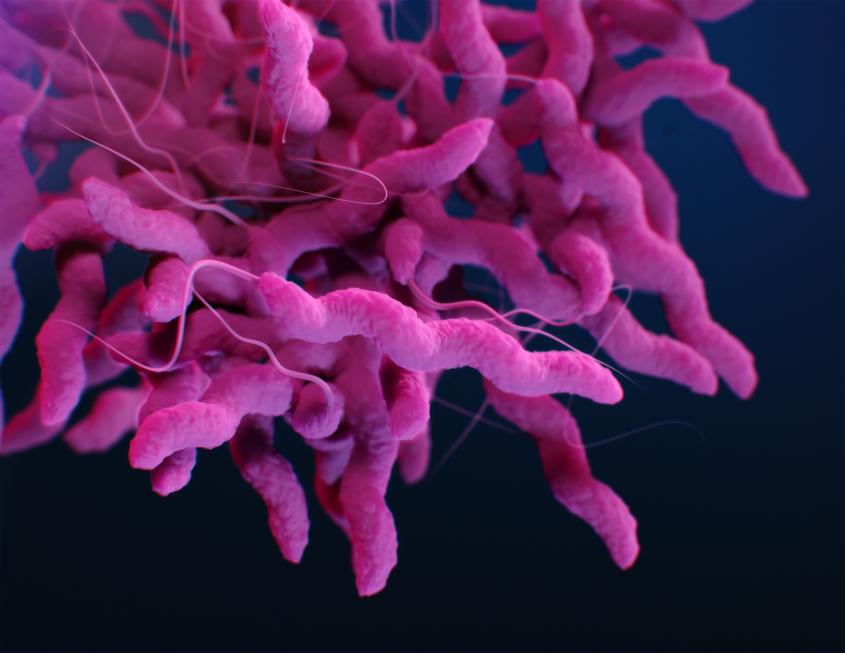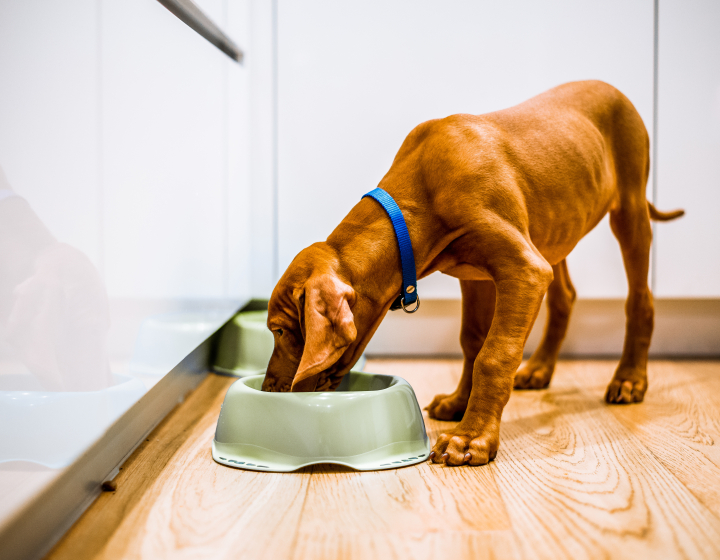Is Campylobacter a hidden source of canine GI troubles?
Dogs can have an upset stomach and diarrhea for many reasons—getting into the trash, a new type of kibble or too many table scraps. But Dr. Kevin Cummings suspects there may be another cause that veterinarians could be missing: a bacterium called Campylobacter jejuni, which is a common cause of food poisoning in people. With support from the Cornell Richard P. Riney Canine Health Center, Cummings is investigating whether the bacterium is an important cause of diarrhea in dogs and what factors might put a dog at risk of infection.
"Even from my days as a practitioner, I had this suspicion that we could be missing cases of C. jejuni in dogs," said Cummings, who is an associate professor of epidemiology at the Cornell College of Veterinary Medicine. "If that's the case, we're missing an opportunity to make an accurate diagnosis and optimize the therapeutic plan for the canine patient. Also, we may be unknowingly sending patients home with an infection that can be transmitted to people."
Veterinarians rarely test for C. jejuni, likely due to the added cost and the myriad other potential causes of diarrhea. The infection typically clears up on its own, but there is a risk the infected dog will pass the bacterium to humans or other animals. In recent years the Centers for Disease Control and Prevention (CDC) linked several cases of multidrug-resistant C. jejuni in people to infected pet store puppies.
To find out whether C. jejuni may be an under diagnosed cause of diarrhea in dogs, Cummings will be working with collaborators at the Cornell University Hospital for Animals to test stool samples from dogs with diarrhea and healthy dogs coming in for routine checkups. Their tests will show what proportion of dogs in each group are shedding the bacterium. They suspect that dogs with acute diarrhea will be more likely to harbor C. jejuni than healthy dogs. They also plan to examine any C. jejuni that they culture from stool samples to see if they are resistant to antibiotics.
Cummings will also try to identify factors that may increase a dog's risk of becoming infected, such as different types of diets, medications or visits to dog parks and doggy daycare facilities. "One big dietary factor that is on our mind is raw meat diets, which present a clear risk, not only for Campylobacter, but also Salmonella," he said.
Cummings hopes that his CHC-funded study will reveal potential risk factors so that veterinarians will have a better idea when to test a dog for C. jejuni. Additionally, owners will be able to limit their dog's exposure to prevent their pets—and themselves—from becoming infected.
Written by Patricia Waldron






